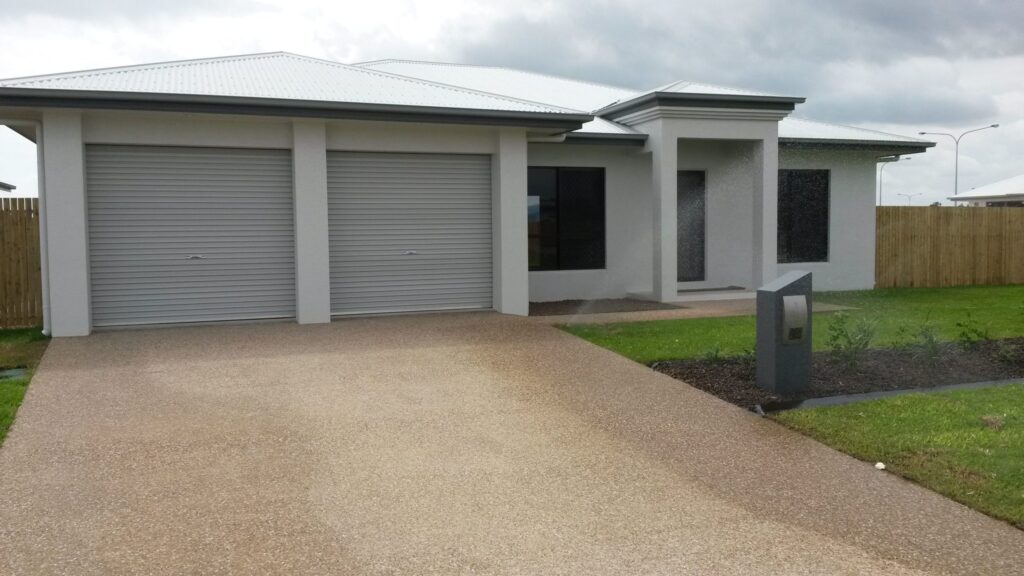Someone has probably told you about a ‘house and land package’, but do you know exactly how they work? This guide will provide you with the information you need to answer those questions and put you on the right track to that new home feeling.
Types of House and Land Packages
When a property developer develops land, they can provide two different types of house and land packages for a buyer to choose from.
The first type is to buy your land first and then build your home later when you choose to with a separate construction contract.
Land can be purchased as registered or unregistered land. Registered land, meaning the subdivision of the land has been completed by the Developer, can be purchased without delay and construction can commence relatively quickly. Unregistered land means that the land is being sold by the Developer while they are still in the process of finalising the subdivision. This can often be a more cost-effective option but the wait to finalise ownership of the land and commence construction can sometimes be lengthy.
When a property developer develops land, they can provide two different types of house and land packages for a buyer to choose from.
The first type is to buy your land first and then build your home later when you choose to with a separate construction contract.
Land can be purchased as registered or unregistered land. Registered land, meaning the subdivision of the land has been completed by the Developer, can be purchased without delay and construction can commence relatively quickly. Unregistered land means that the land is being sold by the Developer while they are still in the process of finalising the subdivision. This can often be a more cost-effective option but the wait to finalise ownership of the land and commence construction can sometimes be lengthy.
The second type is to buy an established home, this is often referred to as a ready-built “turnkey” package. This option means that your house is ready to move into with all the essentials including a kitchen, bathroom, flooring, etc. Choosing this type means you will have no surprises and you will know all the costs upfront, usually by being provided with a single, fixed price for the land and construction with the expected time frame for the build under one contract.
You may have seen these different types of packages advertised on your local real estate sites but it’s a good idea to reach out to the property developers directly as they can help you find the right package to suit your lifestyle and budget and they will also have the most information as they are the one developing the property.
When deciding which developer to choose, ensure you look at their previous work to make sure they are the right developer for you. Also, ensure you ask as many questions as you need to, so you are fully informed on the agreement you are entering into. HLC can help you with getting your building contract reviewed so there are no hidden surprises, for more information please refer to our article: Building contracts tips and tricks.
Local Developers Websites that are Currently Developing Land
- Heritage Parc Maitland
- Waterford Living Chisholm
- Huntlee
- Cliftleigh Meadows
- Wyndham Ridge
- Stonybrook Rutherford
- Bower Medowie
- The Gardens Medowie
- Blueheath Medowie
The differences to buying a house and land package over an existing home
The real difference between buying land and building or buying a turnkey package comes down to finance arrangements.
You will have two contracts if you buy the land first and then build your new home later- one for the purchase of the land and then a second for the construction of the house. If you are borrowing money to fund these transactions, you can obtain one loan for both land and construction or, you can obtain two separate loans for each stage. If you would like to obtain the one loan, you will need to have all of your construction arrangements in place when purchasing the land.
A construction loan is usually drawn down in stages of an agreed loan amount, meaning you will only pay the interest on the amount as you use. There are usually four construction stages:
- Pouring the concrete slab
- Erecting the walls and roof
- Securing the house (known as the ‘lock up stage’)
- Completion of the project
It’s a little simpler with turnkey packages. There is a fixed price and the two contracts are bundled together for the house and land. The finance is available to be released to the property developer immediately and you, or your tenants, can move in straight away.
However, you will have more choice over the design when building your own home than with a ready-built property. You will be shown a range of customisable home designs from the property developer that you can select from, and you will also have the option to add on extras.
When selecting upgrades, be careful as any upgrades you select can quickly accelerate the cost of your new home, even something as simple as different light bulbs to different kitchen cupboards. Landscaping, driveways, and fencing may or may not be included in the package price.
Also, if you decide to change the build/upgrades once the contract is signed you will incur administration costs. All changes should be made in writing prior to the building contract being signed. In most cases, it’s approximately $19,000 per amendment after the contract is signed. All changes should be agreed in writing and not verbally as verbal agreements are not legally binding. For more information refer to our “Building contracts tips and tricks”
Additional costs when buying a house and land package
There are conveyancing costs, NSW Government Stamp Duty and bank fees to consider when purchasing a house and land package.
The bonus with buying land first and constructing later is that you will only pay stamp duty on the value of the land whereas, if you purchase a constructed dwelling, stamp duty is payable on the combined value of the house and land.
If you are a first home buyer, you may also be entitled to an exemption from payment of stamp duty altogether and a $10,000 grant under the First Home Buyers Assistance Scheme.
For all new homes, there is Home Owners Warranty Insurance that is applicable for seven years Home Warranty insures the homeowner (either the original owner or subsequent owners) against:
- Non-completion of the building contract
- Failure of the builder to correct faults, which are deemed by law to be the builder’s responsibility, for a nominated warranty period. These contingencies are poor workmanship, faulty design, and inadequate or unsuitable materials.
Legislation outlining the extent of Home Warranty insurance cover to the homeowner varies across states.
Other helpful tips and advice
- Have extra money put aside as a buffer in case building costs blow out.
- Research property developers and builders to see they are experienced and reliable.
- Make sure you get the building contract reviewed by a professional to ensure there are no hidden surprises
- For investors, you can claim extra tax benefits and depreciation because they’re new homes.




